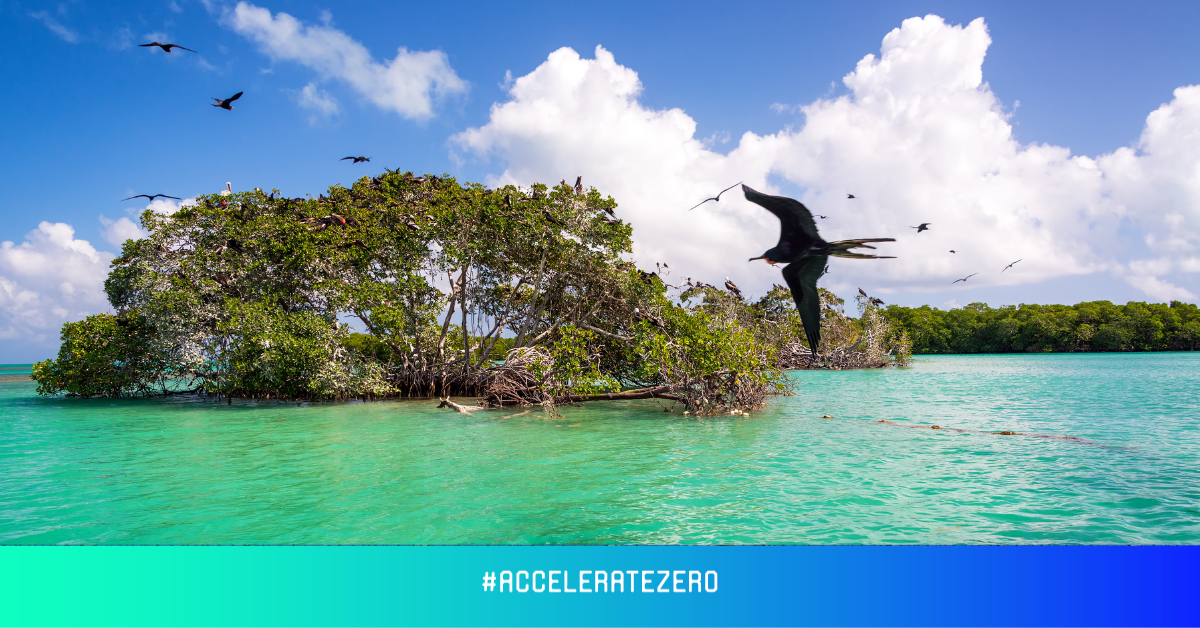Oct 29, 2021 12:03:41 PM
Editorial Team

COP26 has been touted as the most important climate event since Paris. This is due to both changes in political leadership in key countries as well as mechanisms built into the Paris Agreement itself. One such element is the expectation of countries to increase their Nationally Determined Contribution (NDC) or, in layman’s terms, their climate target. New NDCs have a requirement to be more ambitious than those previously submitted, and as a result, many countries are looking for ways to cut their emissions faster and more efficiently.
One of these methods is a group of processes known as ‘nature-based solutions’. Broadly, the term nature-based solutions refers to the process of enhancing and regenerating nature to both address societal challenges as well as drawing down or limiting the emissions of carbon.
The United Kingdom, which holds the influential position of presidents of the COP, will highlight the importance of nature-based solutions to the global efforts to tackle climate change as part of its suite of priority issues. And the UN Environment Program has estimated that nature-based solutions could provide more than one-third of cost-effective climate mitigation needed between now and 2030.
The potential of nature-based solutions for climate change has yet to be fully unleashed in Australia. Investing in nature will help us be more resilient to the impacts of climate change. Healthy mangroves and coastal ecosystems are highly effective carbon sinks and also offer protection from storm surges, wetlands filter and absorb water that help with drought resistance and tree-lined hillsides protect communities from the effects of erosion.
Nature-based solutions must be a core part of Australia’s national plan to reach net-zero, starting with support for a more nature-positive food production system and a transition from native forest logging to plantations.
Australia is also fortunate to be home to some of the world’s leading nature-based solutions experts, who have been working with nature to build social and ecological resilience for tens of thousands of years. Today, Indigenous rangers all over Australia are caring for millions of hectares of Country. Indigenous rangers and Traditional Owners are advancing nature-based solutions to climate change through the revitalisation and application of traditional knowledge, such as cultural fire management which uses “cool burns” to regenerate ecosystems and reduce the frequency and severity of bushfires.
With the right actions we can literally shift Australia from being a deforestation nation to a leading reforestation nation, which would benefit our climate, wildlife and people.
Given the disproportionate impacts of climate change on Australia’s nearest neighbours, it is also worth examining the impacts, opportunities and risks that a nature-based solutions focus could have in the Pacific.
"Nature-based solutions must be a core part of Australia’s national plan to reach net-zero, starting with support for a more nature-positive food production system and a transition from native forest logging to plantations."
Pacific communities and economies are uniquely dependent on biodiversity for their social, cultural and economic wellbeing. Nature based solutions, particularly those that focus on the regeneration of natural systems, offer a potential pathway to protect this biodiversity while simultaneously drawing down emissions and supporting community adaptation.
But not all nature-based solutions are created equal. “Nature-based solutions” that seek to use nature to address climate change without taking an ecosystem-based approach can actually be maladaptive. Afforestation through the introduction of non-native monocultures, for example, might capture some carbon, but would do little to support the biodiversity upon which communities depend and create new vulnerabilities to pests and disease.
Social and economic considerations are just as important when designing nature-based solutions. Pacific fisheries and other vital natural resources face extreme threats driven by climate change, biodiversity loss, overexploitation, weak governance and institutional capacity, and poor development planning. These threats are compounded and perpetuated by social challenges, including the exclusion of women, young people, and people with disabilities from government and community level natural resource governance.
The direct impacts on ecosystem services have serious implications for the economic health and broader human security of the region. For example, the Secretariat of the Pacific Community (SPC) has estimated that 75% of PICTs’ coastal fisheries will not be able meet their food security needs by 2030.
Applying socially-inclusive ecosystems approaches in supporting nature-based solutions in the Pacific will not only advance climate action. It will also help communities protect and sustainably manage their precious natural resources while supporting economic recovery and resilience in a COVID-19 context. Local communities are best placed to identify and implement the climate solutions that will deliver the best results to their community and for the planet.
Effective nature-based solutions require locally-led approaches. This is not just about doing the right thing, it is also good strategy. Especially when one considers that 36% of the world’s key biodiversity areas are within the territories of Indigenous People and Local Communities (IPLC) and 91% of IPLC lands are considered to be in good or fair ecological condition.
WWF has been supporting communities in the Pacific to harness the power of nature to mitigate and adapt to climate change for many years. We know that effective nature-based solutions are just as much about communities’ development aspirations as they are about climate science, and we’re excited to be working with Australia’s Department of Foreign Affairs and Trade on a soon-to-be-announced program advancing socially-inclusive nature-based solutions in the Pacific.
***
Oliver Toohey is WWF-Australia’s Global Climate Program Manager. WWF-Australia is supporting the upcoming Impact X Summit Sydney 2021: Climate growth and accelerating pathways to zero emissions. Click here to register.